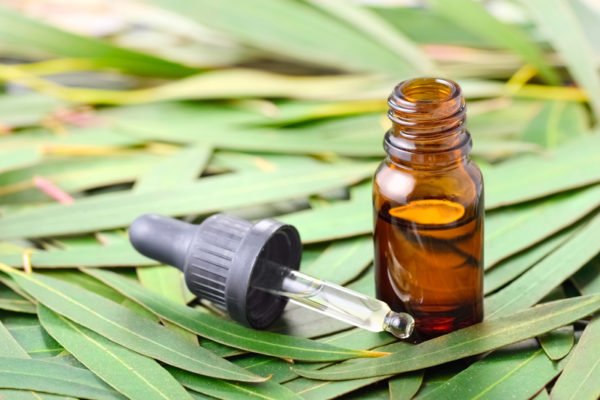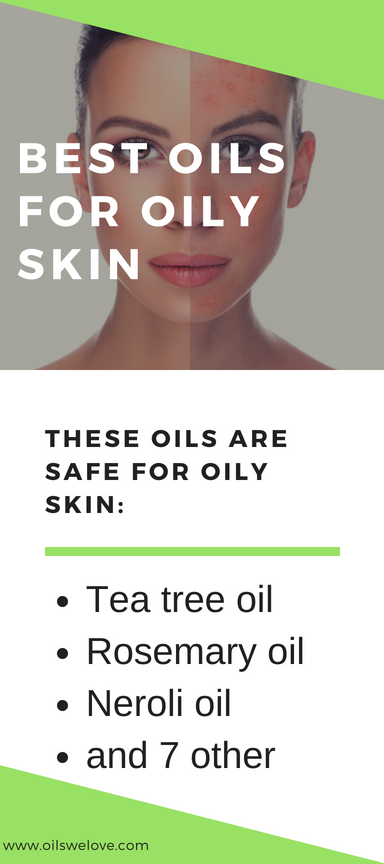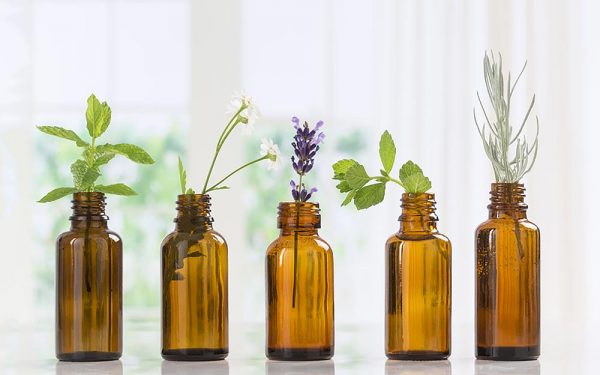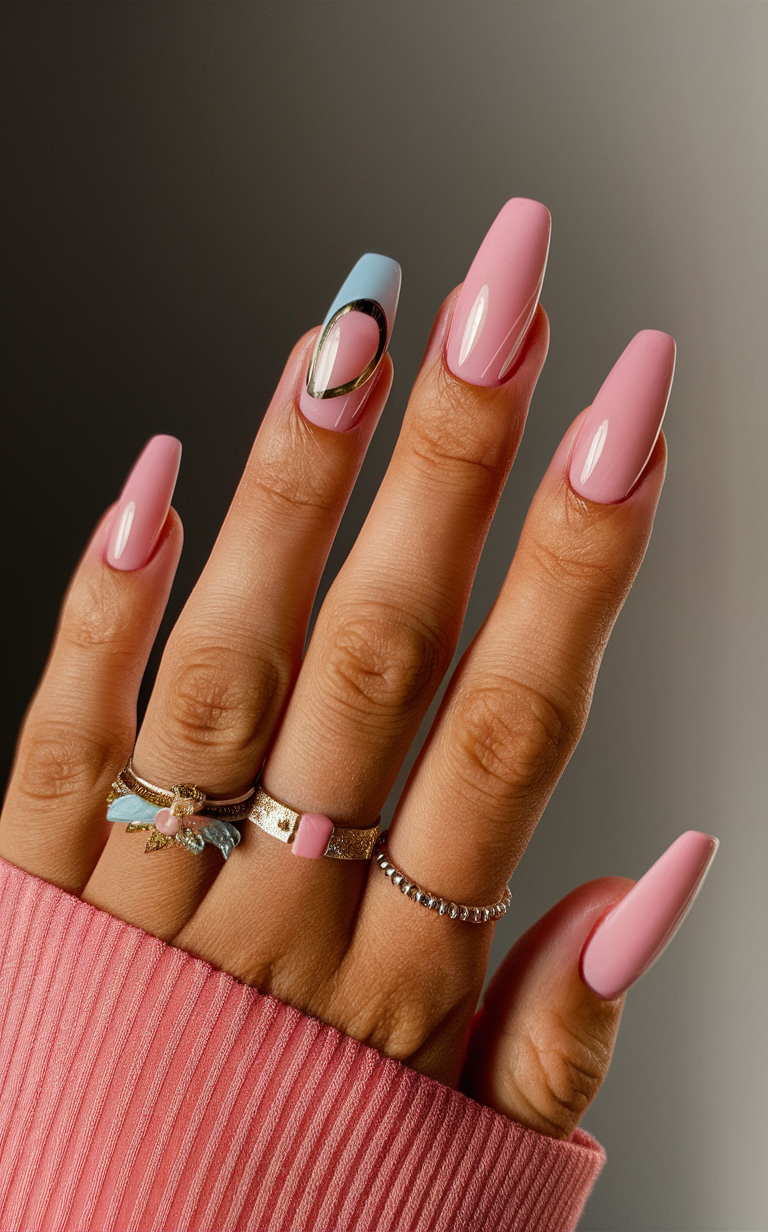10 Best Essential Oils For Oily Skin
As strange as it may sound, oils can be your savior when you suffer from oily skin or acne-prone skin. Many essential oils are actually good for controlling excess facial oil by balancing your skin’s oil production.
Check out 10 best essential oils for oily skin:
Tea Tree Essential Oil
One of the best essential oils for oily skin is tea tree oil. It has powerful antioxidant properties that can significantly improve the appearance of blemishes and scars.
This is a strong oil that should always be diluted with a carrier oil to avoid burns, irritations, allergic skin reactions (for every 1 to 2 drops of tea tree oil, add 10-12 drops of carrier oil).

Also, it is not advised to use this oil around the eyes because it can cause irritation and itchiness.
To reduce the appearance of enlarged pores and oily shine, add a few drops of tea tree oil into your toner, moisturizer, or daily oil blend. A great effect can be achieved by adding a few drops of tea tree oil to a bentonite clay mask.
Finally, if you are allergic to tea tree oil, there are also several alternative oils that have the same anti-acne properties, but their smell is not that strong.

Rosemary Essential Oil
If you suffer from pimples or acne, then you may need to add a little anti-bacterial action to your skincare routine. Rosemary essential oil helps to balance oily skin and keeps whiteheads, blackheads, acne and other oily skin related problems away.
Rose Essential Oil
Rose essential oil has one of the strongest anti-bacterial properties of all the essential oils. In 2010, Chinese researchers found that diluted rose essential oil killed the bacteria that cause acne in just five minutes.
Neroli Essential Oil
Its antioxidant properties may help reverse some of those telltale signs that we are getting older like blemishes, age spots, and wrinkles.
Cedarwood Essential Oil
![]()
Cedarwood oil is effective for tightening the facial skin and giving it a youthful appearance.
Cedarwood normalizes both oily and dry skin; it is powerful enough to be able to calm acne rashes, eczema, and oily scalp.
Cedarwood oil is a great astringent. Astringents help tighten pores and dry out oil. Cedarwood oil belongs to the range of natural astringents, which also include, for example, witch hazel, apple cider vinegar, kombucha. You can use any of them as a natural tonic after cleansing your face and before applying moisturizer.
Fennel Essential Oil
Fennel oil fights free radical damage and provides antimicrobial activity against some strains of bacteria and pathogenic fungi.
Lemon Essential Oil
Lemon oil is astringent and detoxifying in nature, and its antiseptic properties help in treating pimples and various skin disorders. Lemon also reduces excess oil on the skin and it is awesome for hyperpigmentation.
Eucalyptus Essential Oil
Chemical-free moisturizer: Mix 3-5 drops of eucalyptus oil with 1 tablespoon jojoba oil or sweet almond oil and massage into the skin. This helps to rejuvenate and soften the skin.

Thyme Essential Oil
Moisturizes the skin, and minimizes the appearance of acne.
Basil Essential Oil
Enhances the luster of dull-looking skin and hair. As a result, it is extensively used in many skincare supplements that claim to improve the tone of your skin.
Take care and be safe
Some closing words. Be careful when using essential oils while pregnant/nursing. Always consult your doctor before using any of the above oils if you are pregnant.
Finally, always do a patch test with any oil before applying it to your skin. If the test shows no irritation and you decide to proceed with using oils for oily skin, use them mainly at night time for best results because this is when the skin repairs and rejuvenates itself.
As always be safe and check with your healthcare provider before starting to use any oils or home remedies.

Disclaimer: The contents of this website are for informational purposes only and do not constitute medical advice; the content is not intended to be a substitute for professional medical advice, diagnosis, or treatment. Always seek the advice of a physician or other qualified health provider with any questions you may have regarding a medical condition.







